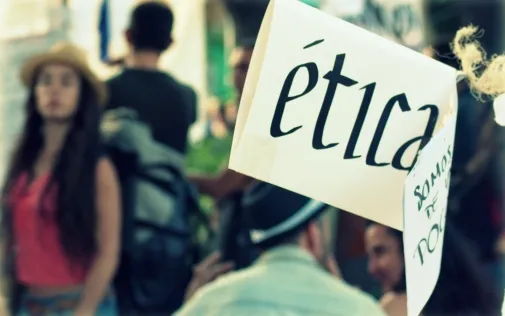
If we don’t value people who are involved in the organization, the work done externally will be deeply affected.
For some days now I’ve been thinking about the commission to write an article about people and actors in non-profit organizations, the roles they take on, personal relationships, their role in getting projects to move ahead… and it’s always good to remember the large number of people who, in one way or another, are involved in the big world of non-profit organizations and how important it is to plan their involvement and engagement strategically.
But the goal behind this article isn’t to deal with and praise the role of people in these organizations, because everyone knows how important they are; the goal is to dissect some of the aspects in their relationships. Even if working in organizations that defend and work mostly towards social justice and transformation, surrounded by values and ethical principles, these relationships are not always free of personal behaviours and situations that are objectionable and go totally against the very basic principles of the organization.
One way or another, none of us a completely free of prejudice or, to some extent, of resorting to stereotypes; so, even if in theory we are moving in spaces that should be “safer” and “friendlier”, non-profit organizations are not floating on a cloud free of potential situation of power abuse, harassment at the workplace, macho attitudes, discrimination based on race or origin, gender identity or sexual orientation, age, language use, religious identity…or the vast forms of discrimination that prevail in our society.
This is why, as organizations with a vocation of social transformation, we have the duty to work to eradicate institutional, collective or individual discrimination in internal relational spaces (working groups, boards of directors, informal spaces, workspaces…) and also in our external actions.
There are several tools that we can use to prevent these situations or to take early action when they are detected: equality plans, internal rules and procedures, codes of ethics, adopting participatory techniques to ensure everyone’s voices are heard in participatory spaces, protocols to manage conflicts, establishing specific working committees, developing training on awareness or “safe” channels to report abuse, among many others.
But one really needs to be brave, prevent time and again, but also, when a case arises, whether a subtle or violent case, an organization really needs to tackle the reality face on even if it really shakes things up (the person affected for sure will be much more shaken up), take responsibility, try repairing the damage done and work to avoid this situation from happening again. At the end of the day, it’s about taking care of the people in the organization, being aware that our world turns around these people.
This concept, the concept of care, has been worked on in many organizations to rethink their internal functioning, but there is still a lot more work to be done. If we don’t value people who are involved in the organization as volunteers, workers, members or users by creating a real environment for transformation and justice in our/their relationships inside, the work done externally will be deeply affected.



Add new comment